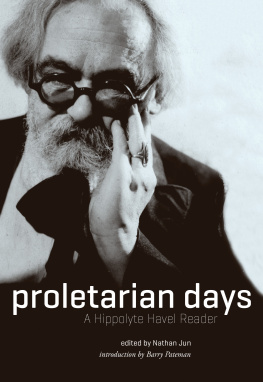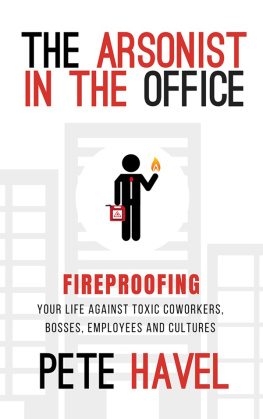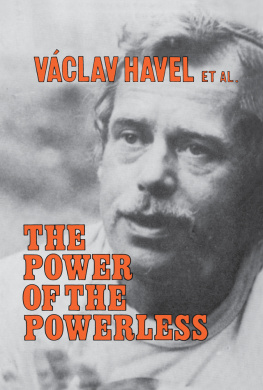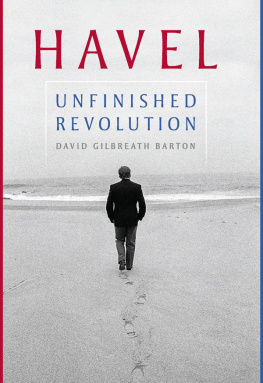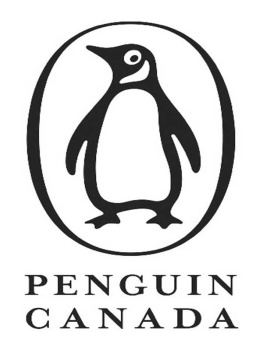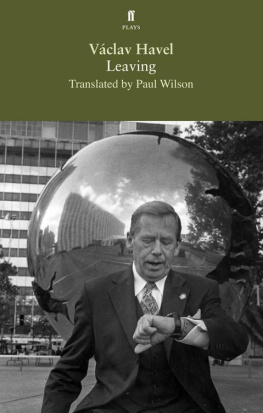Hippolyte Havel - Proletarian Days: A Hippolyte Havel Reader
Here you can read online Hippolyte Havel - Proletarian Days: A Hippolyte Havel Reader full text of the book (entire story) in english for free. Download pdf and epub, get meaning, cover and reviews about this ebook. year: 2018, publisher: AK Press, genre: Romance novel. Description of the work, (preface) as well as reviews are available. Best literature library LitArk.com created for fans of good reading and offers a wide selection of genres:
Romance novel
Science fiction
Adventure
Detective
Science
History
Home and family
Prose
Art
Politics
Computer
Non-fiction
Religion
Business
Children
Humor
Choose a favorite category and find really read worthwhile books. Enjoy immersion in the world of imagination, feel the emotions of the characters or learn something new for yourself, make an fascinating discovery.
- Book:Proletarian Days: A Hippolyte Havel Reader
- Author:
- Publisher:AK Press
- Genre:
- Year:2018
- Rating:5 / 5
- Favourites:Add to favourites
- Your mark:
- 100
- 1
- 2
- 3
- 4
- 5
Proletarian Days: A Hippolyte Havel Reader: summary, description and annotation
We offer to read an annotation, description, summary or preface (depends on what the author of the book "Proletarian Days: A Hippolyte Havel Reader" wrote himself). If you haven't found the necessary information about the book — write in the comments, we will try to find it.
Proletarian Days: A Hippolyte Havel Reader — read online for free the complete book (whole text) full work
Below is the text of the book, divided by pages. System saving the place of the last page read, allows you to conveniently read the book "Proletarian Days: A Hippolyte Havel Reader" online for free, without having to search again every time where you left off. Put a bookmark, and you can go to the page where you finished reading at any time.
Font size:
Interval:
Bookmark:
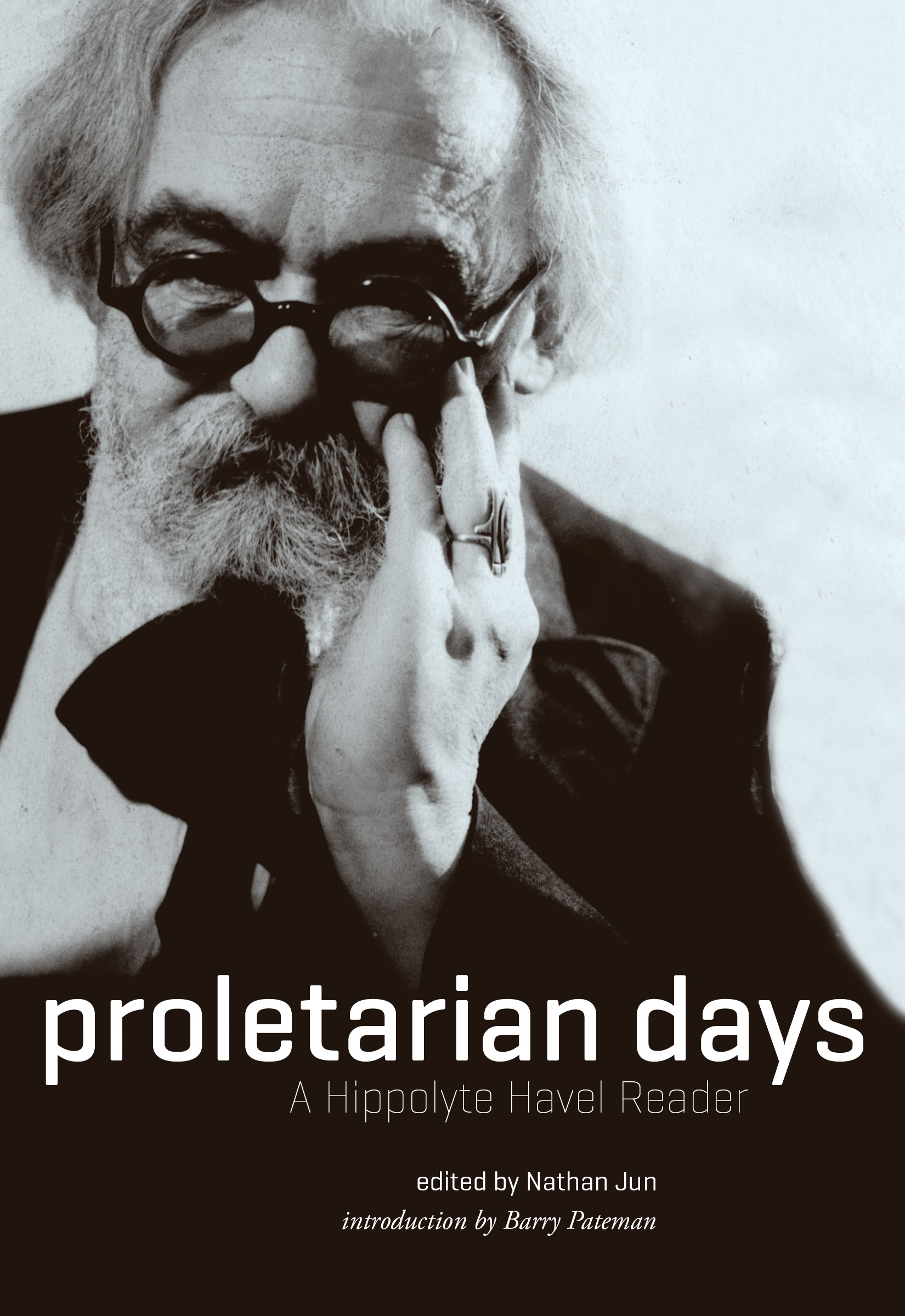
prolet arian days
A Hippolyte Ha vel Reader
edited by Nathan Jun
introduction by Barr y Pateman

The editor wishes to express his gratitude to Charles Weigl, Kate Khatib, and Zach Blue of AK Press for their enthusiastic support of this volume as well as their patience and helpfulness in bringing it to publication; to Jonathan Henderson and John Edgar Shockley for assisting with research during the writing of the initial draft; to Kenyon Zimmer, Tom Goyens, Dominique Miething, Allan Antliff, Jesse Cohn, Patricia Leighten, Fred Notehelfer, Peter Zarrow, John Rapp, Ed Krebs, and Ben Middleton for their assistance in demystifying several of Havels more obscure references; and most of all to Barry Pateman for carefully reviewing the manuscript, recommending additional selections, filling in and expanding upon the annotationsin short, molding and, in general, easing the volume into its mat ure form.
To describe Hippolyte Havel as a prolific writer would be a monumental understatement. From the 1890s until the 1940s he produced hundreds of essays, reviews, and others writings for a variety of anarchist publications. In lieu of assembling these writings into a single, comprehensive collection (a formidable task, to say the least!), the present volume instead provides a representative sample of Havels most important and influential work. The fact that much, if not most, of this work appeared in Emma Goldmans Mother Earth a journal which Havel himself had a hand in creating and to which he contributed voluminously for more than a decadeis reflected in the range of selections chosen for inclusion herein. In an effort to authentically capture the idiosyncrasies of Havels writing, the editor has faithfully reproduced these selections from the original texts, including any errors in spelling, grammar, etc. they happen to have contained. Editorial annotations for each selection appear in numbered footnotes, the first of which provides bibliographic information about the source material. Havels original annotations are designated by [Havels note] in the footnote.
Nathan Jun
Wichita Fa lls, Texas
Octob er 6, 2017
In addition to writing for Chicagoer Arbeiter-Zeitung (18771931), Free Society (18971904), Regeneracon (19101918), The Modern School (19121922), The Anarchist Soviet Bulletin (19191920), and Freedom (1919), Havel also founded and edited (or assisted others with editing) a wide array of anarchist publications including The Revolutionary Almanac (1914), Revolt (1916), The Social War (1917), Free Society (19211922), The Road to Freedom (19241932), Open Vistas (1925), and Man! (19331940). His work also appeared occasionally in non-anarchist publications such as Brunos Weekly (19151916) and Alfred Stieglitzs Camera Work (1 9031917).
Barry Pateman
There are many myths and stories about Hippolyte Havel, a good few he created and shared himself, so we might want to begin by providing a bare bones account of his life and deal with the legends another time. Hippolyte Havel (18691950) was born in what was then Bohemia. He was educated in Vienna and became an anarchist there, writing for the anarchist press. He was arrested in 1893 after giving a May Day speech that was considered incendiary and went to prison for eighteen months. On his release he was expelled from the city. He was arrested again in Prague (the charges are a little less certain but had something to do with being involved in a demonstration). He lived in Germany for some time, apparently still involved with the anarchist movement. Havel returned to Vienna and was arrested for ignoring his banishment. He eventually moved to London although there is no evidence, as yet, that he took any active part in the movement there. He did, though, meet Emma Goldman there while she was speaking at the Autonomie Club in November/December 1899, and became her companion for a short while. They were both in Paris in September 1900 attempting to attend the banned Revolutionary Congress of the Worki ng People.
Havel accompanied Goldman to America in December 1900 and soon was in Chicago working on the anarchist communist newspaper Free Society . Together with other anarchists editing the paper, Havel was arrested on 6 September 1901, immediately after Leon Czolgosz had shot President McKinley. He was still part of the editorial team when they relocated the paper to New York in the Spring of 1904 and in 1906 became a key member of the Mother Earth editorial group. He left the group in February 1911 and visited Paris, before returning to New York in the same year. Together with Harry Kelly he went on to form the Syndicalist Educational League, based at the Ferrer Center in New York and, by this time, appears to have adopted his role as a historian of the anarchist movement. During 1910 he wrote the biographical introduction to Emma Goldmans Anarchism and Other Essays and in 1914 did the same for Voltairine de Cleyres Selected Works both books printed by the Mother Earth Publishing Association. The introductions provided a template for future scholars to draw on and, in general, their accuracy is detailed and impressive, even though his biography of Goldman had to be circumspect in placesespecially on her involvement with Alexander Berkmans attempt on the life of Henry Clay Frick in 1892 and her part in Berkmans attempted escape from prison in 1900. Also in 1914 Havel produced the pamphlet Bakunin (New York: The Centenary Commemoration Committee) and edited the Revolutionary Almanac (New York: The Rabelais Press). In 1915 along with others he signed the International Anarchist Manifesto On The War which was both a powerful anti war statement urging anarchists to foment insurrection in this time of capitals war as well as a pre-emptive strike against Kropotkin and other anarchists who were calling for support for the Allies. He returned to newspaper production in 1916, editing Revolt , which was published in the basement of the Ferrer School in New York.
In 1917 he was one of the editors of The Social War and was briefly arrested for his troubles. During World War I he is only occasionally glimpsed, mainly at Stelton in New Jersey where the Modern School was based. From 1923 to 1924 he worked as a cook at the Mohegan Colony before returning to Stelton to help edit the anarchist newspaper Road To Freedom . He would live in the Kropotkin Library at Stelton for the next twenty-five years. In 1925 he edited six issues of Open Vistas with Joseph Ishill and went on to be active in support of Sacco and Vanzetti, visiting both of them in jail. Havel helped Marcus Graham with his paper Man! and throughout the twenties and thirties was heavily involved in trying to resurrect the American anarchist movement. In 1932 he published the disappointing and heavily plagiarized Whats Anarchism? (Free Society Group of Chicago and the International Group of Detroit). Tired and ill he undertook one last lecture tour through parts of America in 1934. The last years of his life were bitter ones. He was physically damaged by his drinking, probably suffering from Alzheimers disease and he led an increasingly fragmented existence, eventually dying in a psychiatric hospital in New Jerse y in 1950.
There is still a lot for us to learn about this man. At the moment there are two periods of his life when he becomes somewhat clearer to us: between 1912 and 1916 when he was involved with the nascent New York art and literary scene where he was friends with host of artists and writers such as Eugene ONeill, Theodore Dreiser, and Man Ray; and, for some time after 1924 when he lived at the anarchist colony at Stelton where the Modern School was based. In the first period he appears in memoirs by Mabel Dodge, Max Eastman, Hutchins Hapgood and other writers. In these narratives Havel comes across as larger than life, irascible, obscene, often drunk, and a master of the clever and witty one- liner. To the children at Stelton, in the second period, he was a small bewhiskered eccentric sitting on the steps of the Kropotkin Library as they wandered past. He appears as essentially kindly but prone to wild outbursts. None of these portrayals allow us to see Havel as the contemplative and militant propagandist of the anarchist movement that he, essentially, gave hi s life to.
Font size:
Interval:
Bookmark:
Similar books «Proletarian Days: A Hippolyte Havel Reader»
Look at similar books to Proletarian Days: A Hippolyte Havel Reader. We have selected literature similar in name and meaning in the hope of providing readers with more options to find new, interesting, not yet read works.
Discussion, reviews of the book Proletarian Days: A Hippolyte Havel Reader and just readers' own opinions. Leave your comments, write what you think about the work, its meaning or the main characters. Specify what exactly you liked and what you didn't like, and why you think so.

